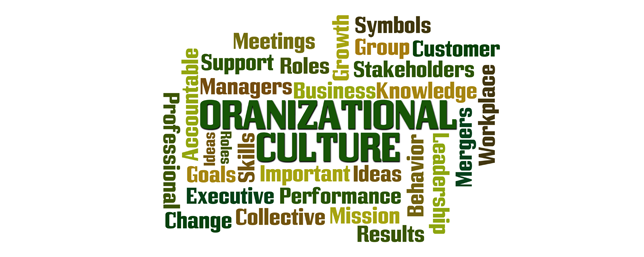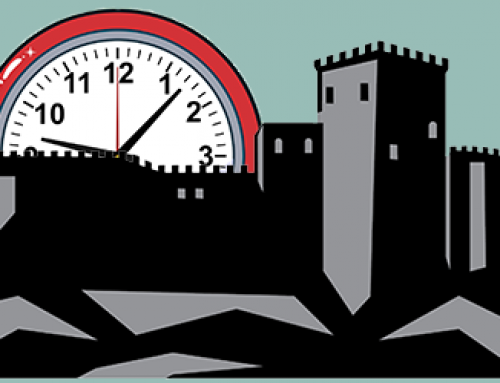Here’s a simple statistic: 100% of companies have “a culture.” Whether you deliberately cultivated it, or it simply emerged and evolved on its own, your company has a culture. But what is company culture?
Culture has huge implications for any organization, and it can ultimately make or break your business. However, many companies don’t examine, evaluate, and understand the culture they have, and even fewer take actions to proactively influence it.
To start understanding and examining your company culture, you first need to understand what organizational culture means.
What is culture?
Company Culture is the behavior of an organization and the meanings that its people attach to their actions. Organizational culture affects the way people and groups interact with each other, with clients, and with stakeholders.
Given its widespread effects, not just within your company but in its relationships and interactions with customers, it’s critical to establish a positive culture that’s conducive to success and will help you build and maintain a strong organization and brand.
How is your culture created?
Companies should never settle for a culture that’s simply evolved on its own–even if the results thus far have been positive. This leaves things to luck, and luck can run out over the long-term.
The key is to actively create and maintain a positive culture and leave nothing to chance. This requires effort, determination, and a willingness to nurture and maintain a positive culture along the way.
Start by asking yourself three simple questions:
- What sort of culture does your company have?
- What are you doing to create the culture that you want versus settling for the culture that you get?
- How can you proactively influence your company culture and start building or maintaining a culture that will guarantee success?
Then consider the fundamental building blocks of company culture, whether you have the right ones in place, and ask yourself some key questions in each of these important areas. This will help you arrive at the necessary goals you need to set and the actions that you need to take to make any required changes and achieve the organizational culture you want.
Building Blocks of Company Culture
Values & Shared Values
The foundation of any culture is the alignment around specific shared values. In many companies, values may be implicit or unstated rather than explicit, but they exist nonetheless. What are the things that your company values? (Check out our blog post on How to Define Your Company Values.) Does your company have a set of values that are visible for all to see? Do you engage in regular interactions to revise and redefine your values to adapt to the changing landscape of your company?
Habits
Good, positive habits are not just important in achieving results. They also have a profound influence throughout the organization because good habits often influence and inspire others to develop the same habits. Bad habits can likewise proliferate and spiral into unwanted tendencies. What are the habits that are accepted as normal behavior in your company? Is it okay to play loud music? Is it okay for employees to come in late? Are you establishing, encouraging, and reinforcing the right habits that will create the culture you want?
Rituals & Routines
“Rituals” may sound like a strange word when talking about business, but, if you think about it, recurring meetings or regular company events are little more than business “rituals.” And the daily approach to everything from handling incoming calls and emails to processing orders or service requests involves many different routines.
Rituals and routines become a core element of interactions within your company and with customers and other stakeholders. If your business rituals have lost their meaning or lost sight of their original purpose, or if your routines are inefficient or uninspired, this can foster a negative culture. To provide refreshing changes and drive a more positive culture, re-examine your rituals and routines and update or eliminate them in favor of more meaningful, productive, and efficient alternatives.
Language & Symbols
Many industries and even specific businesses have their own coded language. It might be acronyms that are used as industry jargon, or it might be special terms that people use to describe particular products or services, groups or departments, customer categories, or business activities.
What terminology, acronyms, slang, or jargon is used in your company or industry? How does this help or hurt your ability to cultivate a positive culture? Are there any meanings that have taken on a negative connotation? Have your language and symbols inadvertently created silos in your organization or made it more difficult for new employees or customers to engage with your company?
Pursue opportunities to reinvent some of your language and symbols to align with a positive culture and help you establish your preferred values, habits, rituals, and routines.
Systems & Processes
Are your systems and processes well-defined and structured, or are they less rigid and open for interpretation? Clearly defining your systems and processes will allow you to better define and proactively craft your culture.
Systems and processes actually reflect your company values and shared values, manifesting them in systematic ways. They’re instrumental in establishing the right habits and routines to create and maintain a positive culture. So they should be evaluated, chosen, implemented, and deployed in a way that is consistent with the values you want to embrace.
A few examples of systems and processes that can exist in your business and influence culture are: sales and marketing systems such as CRM, project management systems, documents and workflow systems and procedures, manufacturing or service delivery processes, ERP systems, and systems for customer support, collaboration, attendance, and accounting.






